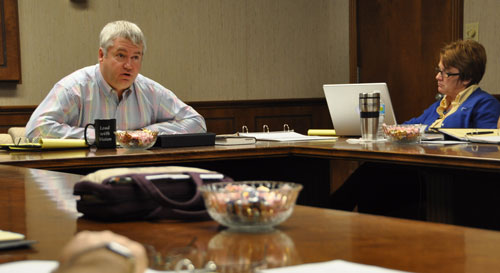18 Oct The Cluster System Continues to Evolve
 All senior pastor and churches are required to participate in a cluster, which is generally a group of senior pastors from 6-8 churches. During the past year, Dennis Miller (right), senior pastor of Emmanuel Community Church (Fort Wayne, Ind.), has been working one day a week as Director of Clusters. In that role he oversees the cluster system.
All senior pastor and churches are required to participate in a cluster, which is generally a group of senior pastors from 6-8 churches. During the past year, Dennis Miller (right), senior pastor of Emmanuel Community Church (Fort Wayne, Ind.), has been working one day a week as Director of Clusters. In that role he oversees the cluster system.
The cluster strategy was reorganized this year, with four types of clusters:
- Geographical Clusters. Pastors that serve in a certain geographical area (which is true of most of the clusters).
- Affinity Clusters. Pastors who have the same focus, church size, ministry philosophy, whatever.
- Social Clusters. A cluster that has fellowship as its primary purpose.
- CECL. A cluster using training from the Center for Excellence in Congregational Leadership.
Here are some items from Denny Miller’s written and oral report to the Executive Leadership Team on October 12.
- There are 28 clusters. Two meet for fellowship only, one uses the CECL training, and one cluster hasn’t been meeting. The other 24 clusters use a common video curriculum we developed for cluster meetings.
- A training event for cluster leaders was held in January, with most of the leaders attending.
- On January 10, 2011, another training event for cluster leaders will be held in Huntington, Ind., with a focus on coaching. Each cluster leader will be asked to coach one person from his cluster in the coming year.
- The curriculum for 2011 will focus on church systems.
- We will offer two new clusters–one for pastors leading churches with over 200 people, and one for pastors leading churches with fewer than 200 people.
- A system was devised whereby Bishop Whipple, Jeff Bleijerveld, and Denny Miller will each meet with one-third of the clusters during the year, thereby giving each cluster a personal contact.
- Former bishops Ron Ramsey and C. Ray Miller each call and encourage half of the cluster leaders each month.
Information about the cluster system and the constituents of the various groups is given on the UB website.

